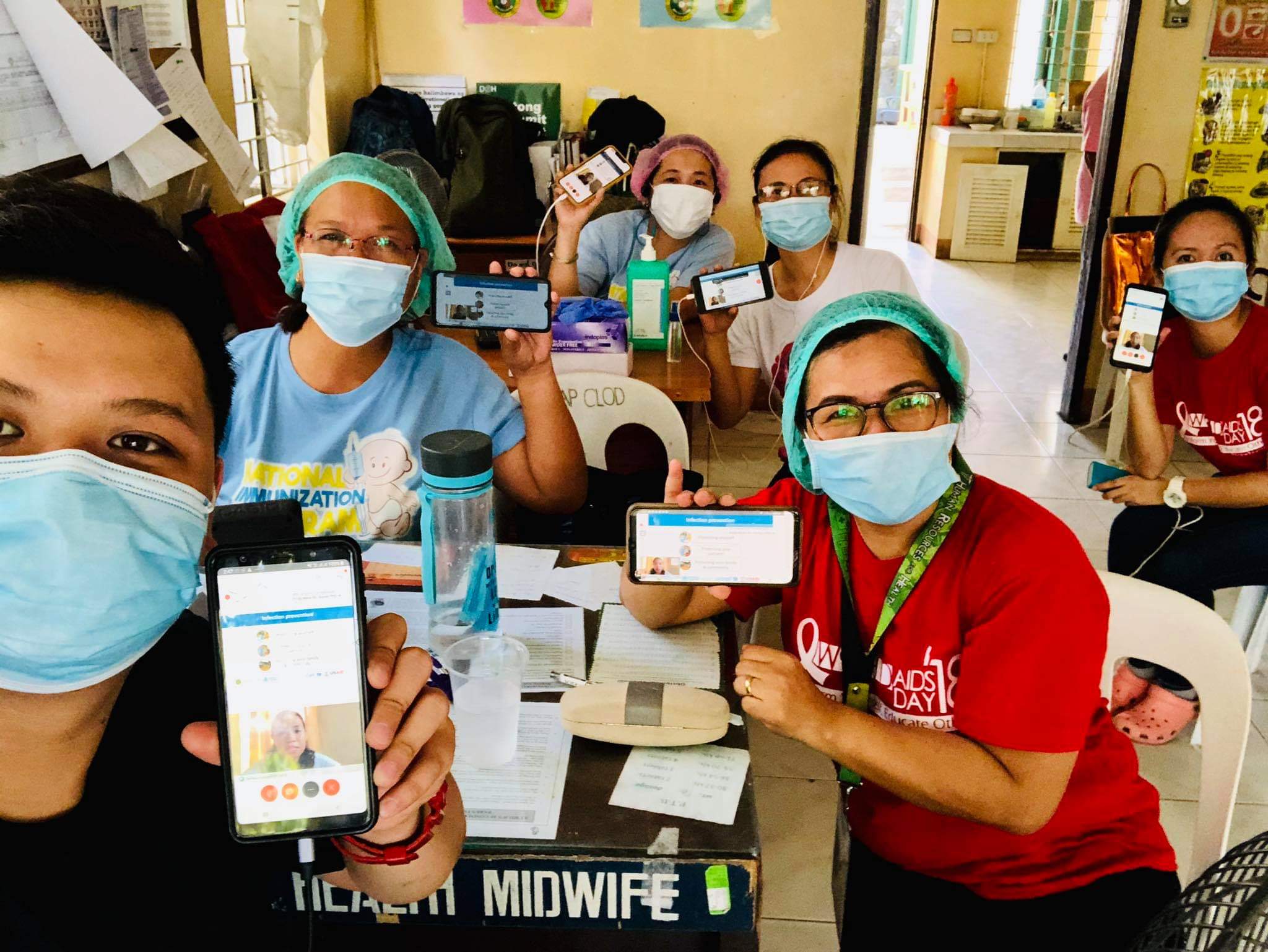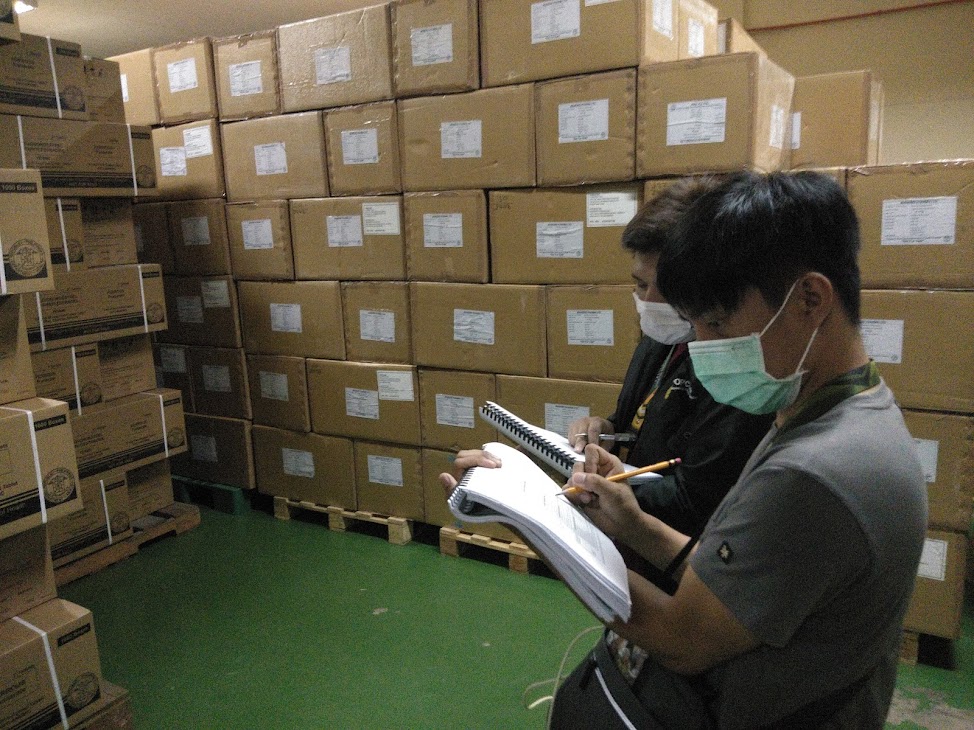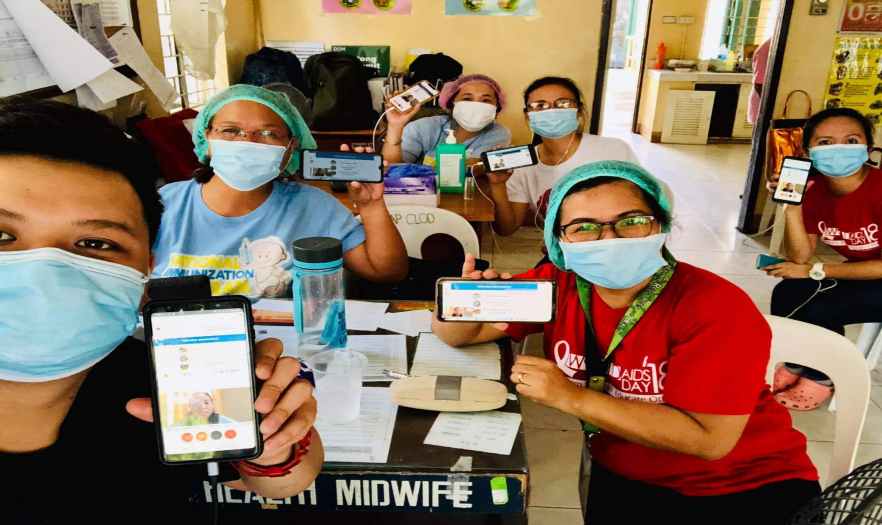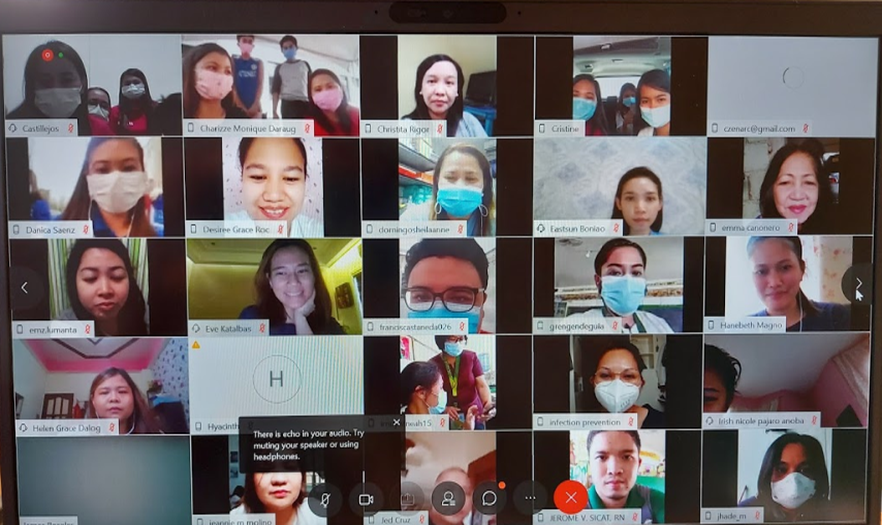Country Landscape and MTaPS’ Support
When COVID-19 struck the Philippines, its Department of Health (DOH) quickly responded by setting up a national COVID-19 task force and emergency operation center and designating 17 hospitals as COVID-19 centers. However, these centers and other health facilities were not equipped to handle the influx of COVID-19 patients, and workers were not trained on COVID-19-specific infection prevention and control (IPC) or proper waste management. The supply chain for IPC commodities, including badly needed personal protective equipment (PPE), also needed bolstering to handle the demand.
USAID MTaPS joined hands with WHO, UNICEF, and other implementing partners to support DOH to strengthen its emergency supply chain management and the IPC capacity of its health care workers to recognize and isolate suspected COVID-19 patients and to keep workers and patients safe through proper waste management. MTaPS leveraged its ongoing assistance to DOH on the national health supply management system to build a national emergency procurement and supply chain management system, which involved developing a legal instrument as well as electronic supply chain tools. In a major achievement, MTaPS rapidly launched an e-training hub that reached thousands of health workers from public and private facilities across the country in the face of the country’s lockdown, imparting skills for IPC, health care waste management, and emergency supply chain management—all tailored to COVID-19.
Currently, MTaPS is supporting the Philippines’ effort to vaccinate its population against COVID-19. Approximately 65% of its population is fully vaccinated as of July 2022. MTaPS is supporting DOH on policies and operational aspects of the COVID-19 vaccine supply chain to meet the cold chain warehouse needs and logistics management.

COVID-19-related e-learning modules, developed by MTaPS, were integrated into the DOH Academy for continued professional development of health workers in the Philippines
Photo credit: MTaPS Philippines
Select Highlights
Infection Prevention and Control (IPC)
- Developed a training package, national guidelines, and standard operating procedures on COVID-19-related IPC and waste management
- Rapidly reached thousands of health workers with training through real-time online video platforms and adapting the courses to self-paced modules freely accessible on an e-learning hub, which became a go-to resource for frontline health workers (read story)
- Conducted site visits to 35 target hospitals to monitor their COVID-19 practices for compliance
Emergency Supply Chain Management
- Developed and implemented a supply management tracking system that equipped DOH with tools for quantification, commodity tracking, and logistics services that helped ensure commodities related to COVID-19 reached the health facilities where and when needed
- Built capacity of ~3,300 individuals on emergency supply chain management through an e-learning module, available on the DOH Academy website
Indicators as of September 2023

14,076
Number of workers trained on
COVID-19-related IPC and/or WASH

144
Number of health facilities supported for IPC and/or WASH for COVID-19

3
Number of COVID-19 e-learning modules developed (IPC + supply chain management)

Trained workers on emergency supply chain management at a warehouse. Photo credit: Estelamarie Papa, MTaPS Philippines
COVID-19 Vaccine Supply Chain Management
- Supported the DOH to contract a third-party logistics service provider in deploying COVID-19 vaccines and consumables, helping develop requirements, terms and conditions, and key performance indicators and manage the contract to ensure efficient cold chain storage and distribution of COVID-19 vaccines and consumables to vaccination sites
- Assisting with deployment of a country-wide electronic logistics management information system (eLMIS) for COVID-19 vaccines and ancillaries, including
- Developing policies and guidelines for eLMIS implementation
- Determining requirements for procurement and supply chain management processes and reporting
- Assessing cost elements and infrastructure requirements
- Establishing a governance structure for eLMIS operationalization
Partners include:
- Department of Health
- Department of Information and Communications Technology
- WHO
- UNICEF


